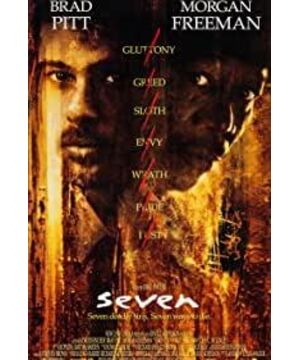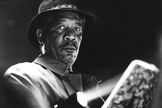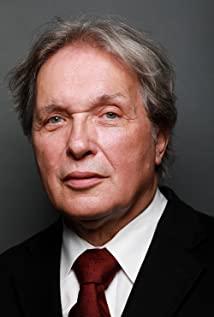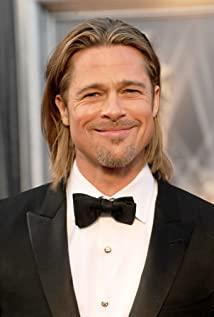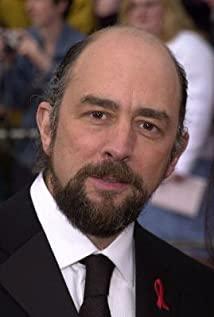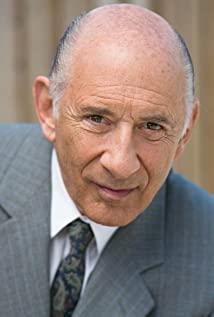"Just Punisher and Compassionate Life" - Reflection on the Survival of the Film "Seven Deadly Sins" "Seven Deadly Sins", just from the name, you can think of the "Ten Commandments"; think of it as a story, you can think of "Ten Days Talk" ". If it is based on associations, then, "Seven Deadly Sins" can reflect the religious implication of Christianity from the perspective of film analysis; from the perspective of story structure, it can tell a combination of stories. The Seven Deadly Sins, however, has no overtly religious overtones or a loose story structure. It takes a secular, integrated narrative. In this way, it can use the mundane material to give the viewer a sense of reality, and it can reinforce the main idea with a sense of wholeness. The advantage of this narrative technique is probably the premise that makes this film able to produce a prominent sense of dramatic art. What I want to do here is some reflections on the existence of the film "Seven Deadly Sins". If a deep and objective reflection is philosophical thinking, then what is going on here is probably a kind of philosophical thinking about the Seven Deadly Sins. The basic approach to examining or reflecting on this film is as follows: the plot promoter of this film is John the Killer who exists as a punisher in a dark posture; the concept of the punisher is the manifestation of the subjective view of justice; the subjective justice overcomes itself The contradiction or narrowness of the reality is shown as objective justice; the contradiction between reality and ideal objective justice shows the overcoming of objective justice on itself; thus, it progresses into organic existence, and conscience and indifference adjust each other. 1. The Punisher and Justice of the Shadowy Posture. The link of the whole story is the Seven Deadly Crimes serial killer John Doo. The motive of John Doo (namely Anonymous, temporarily called Killer John) is to "punish the sins of the world", specifically, to kill those who have committed the "seven deadly sins" of Christianity and make them guilty people are punished. The seven deadly sins of Christianity are: gluttony, covetousness, lust, sloth, pride, envy, and anger. These sins were identified by the 13th-century church theologian Thomas Aquinas, and detailed by Dante in The Divine Comedy. These seven deadly sins are not mere moral precepts, but grave sins. Those who commit one of the seven deadly sins will go to hell and be punished in hell. In this way, Killer John appears as an enforcer who, according to Christian morality, or what can be considered Christian theological law, punishes those who commit these crimes, and he is a punisher ( Thus, he received the title "John the Punisher"). If the Seven Deadly Sins are truly grave sins and should be punished by God's justice, then Killer John as the punisher is the embodiment of God's justice. If God's justice is good in its own sense, it should also be good for the vast majority of those who believe in God. To punish according to God's justice, it is for the well-being of the people. Since Killer John punished people for their sins, ordinary people should thank him and praise him instead of hating him or slandering him. Shouldn't the sins of the world be punished? However, sinners do not necessarily confess their guilt, nor do they think they deserve punishment, so for sinners, secular punishers are more like avengers than justice enforcers. However, if God's justice really includes those sins, there will be God's justice on the side of the enforcer, and the enforcer does not need to judge himself according to the sinner's thinking. Since Killer John is the enforcer of God's justice, he is the embodiment of justice. Some "benevolent" people would think Killer John was a vile criminal, his methods of killing were brutal, and the crime scene was disgusting, bloody, and terrifying. If the punishment for a crime is rightfully so cruel, how can it be evil? Even the Christian description of the punishment for the seven deadly sins is brutal and no less than that of the killer John. Dante's "The Divine Comedy" describes the punishment for gluttony as compulsive eating of rats, toads and snakes; the punishment for greed is torment in oil; the punishment for lust is suffocation in brimstone and fire; the punishment for laziness is thrown into the pit of snakes; the punishment for pride is chakra; right The punishment for envy is to be thrown into ice and fire; the punishment for anger is dismemberment. The punishment for these sins, as judged by religion, is not just the hell scene imagined by literature. In fact, medieval Christian Europe inflicted hellish punishment on those who committed serious crimes. In this way, is the murder method of Killer John evil? Do not! His mode of punishing behavior is exactly that of a law enforcer, and the cruelty deserves it! The Seven Deadly Sins crime narrative does not seem to be establishing the image of Killer John as a justice enforcer. However, viewers may not be entirely sane, but are susceptible to the point of entry into the storytelling. Unlike those who portray positive heroes or positive punishers, the film starts on the victim's side. Films that shape positive heroes almost always start with the hero being hurt by sin or sympathizing with the victim, which easily makes the viewer feel sympathy for the so-called hero and sympathy for the hero, and then the viewer unconsciously thinks that. These injuries are done to the spectator himself, so that a strong feeling of rebellion against sin arises in the heart. This emotion makes the viewer follow the "heroes" he has created on a journey to fight against and destroy evil. Even if these "heroes" are brutally killing people, he is aiming for justice! At this time, the viewer only pays attention to the hero's own justice, while ignoring that the hero is no longer a victim, but a perpetrator. This is the narrative method of a movie about a positive hero. Not so with The Seven Deadly Sins, which starts with the victims who are brutally treated and almost blinds the viewer to the enormity and deserving of their guilt. Those who were killed were made to be innocent victims, while the other killer, John, was a madman-like perpetrator. That's what Officer Mill in the show thinks, when he thinks those killed are actually innocent people. Killer John retorted: Innocent? Isn't that funny? Only in this fallen world can we say that those who have committed the seven deadly sins are innocent! We see capital crimes everywhere, on every street corner, in every home. And we tolerate, tolerate, because it's so common, it doesn't matter, it doesn't matter... yeah! If the religious precepts of the "Seven Deadly Sins" are strictly followed, who can think that those who commit the seven deadly sins don't deserve to die? John the Killer is a murderer, and John the Punisher is to use a series of punishments for the seven deadly sins to warn the world, to preach, to preach the justice of God, or to restore the position of God's justice in people's hearts. Since Killer John, as the punisher of the seven deadly sins, has such a strong sense of responsibility or goal, then he You must ensure that your punishment goals are achieved. And how did he feel confident to complete his punishment process, what exactly he planned at the beginning, the film did not directly explain, so it is impossible to determine with certainty what Killer John's plan really is. However, for a movie, there is no need to study the real psychology of its characters, because the movie exists as an autistic narrative, and it does not have the continuity of reality. So long as it is possible to justify the phenomena of the film through the logic of tuning. Killer John's Punishment Plan for the Seven Deadly Sins, there is an important point here, and that is how Killer John can be sure that his plan will definitely be completed. If Killer John must ensure that his plan can be realized, he must be limited to harsh conditions. For the seven deadly crimes to be coherent, the different punishments must be reconciled. According to the film, Killer John finally completed the seven deadly sins through his own "jealousy" and the "anger" of Officer Mill. There are a few loose ends to this result. First of all, if Mill controlled his anger and didn't kill John, wouldn't the Seven Deadly Sins plan fall through? Second, where is the punishment for Mill? The punished in the first five crimes were all dead, but John and Mill were not certain to die. But in either case, when Killer John turned himself in, his plan was complete. Mill's anger, and his punishment, was also completed when Killer John turned himself in. Mill's anger was not only manifested in the execution of John, but in the treatment of John who was disguised as a reporter. At that time, Somerset reminded Mill not to be impulsive, not to be angry and impatient. However, Mill did not restrain his impulse, and cast his anger on John, who was dressed as a reporter, and declared his identity and name to the other party without hesitation. The anger at this time is not just the impatience of the individual, but the anger that is exerted on others. And the punishment for Mill's anger has already been made, and that is the death of Mill's wife, Trish, and his unborn child. Moreover, this punishment not only hurt Mill's wife, but also hurt his body and mind, causing him to bear an indelible guilt. This kind of punishment is enough to complete John's Seven Deadly Sins punishment plan. This kind of punishment is not contrary to the previous punishment, because, starting from the "Pride" case, the punishment of the victim by John the punisher is no longer obligatory, but has options: or live in pain, or die. Correspondingly, similar to the "Pride" case, John the Punisher's punishment for the victims in the "Envy" and "Wrath" cases is also selective: either live in pain or die. anyhow Still to be sure, by the time John the Punisher turned himself in, his plan had been completed and the coherence and coordination of the seven deadly crimes had been assured. John the Punisher, calling his Punishment of the Seven Deadly Sins a masterpiece. And it really is different. Since the purpose of John the Punisher's Seven Deadly Sins was to preach, or to restore justice, he wanted to ensure the effectiveness of his punishment project. That is, his work must be thought-provoking and viewed as a subject worth pondering. John the Punisher, then, is to make others realize that his work is special and worthy of reflection as uniqueness. As John said, to get people's attention, you can't just pat someone on the shoulder and say, "Hey, pay attention." Will others notice? No, that's not enough! There must be some kind of special behavior that makes others feel shocked, must make people feel amazed, feel the inability to directly understand common sense, feel the ignorance of the narrow self, feel a kind of direct inconceivable... The excellence of the Seven Deadly Crimes lies in , which presents a more veritable image of the Punisher. See how so many punishers are portrayed elsewhere! So many so-called punishers, although they claim to punish sins, ignore their own sins. Those punishers, when they avoid letting others go unpunished, make themselves free from justice. They are walking on the road of realizing the so-called justice, and they are also walking on the road of venting and revealing their own sins. [So many people hate sin so much that they forget to free themselves from it. So many people yearn too much for justice, yet they turn themselves away from it or even further away. ] Not to mention those so-called punishers, who are just impulsive and reckless, swaying violence and enjoying the satisfaction of selfish desires. Don't those punishers have no reflection, and aren't the injuries caused by those punishers too much? Unlike the so-called Punishers, Killer John didn't keep himself out of it. [To discover a comprehensive conception of justice by examining the world, one should also examine oneself. ] Killer John acted not only as a punisher but also as a victim in the Seven Deadly Crimes. John the Punisher was not prepared to escape his punishment in advance. He did not ignore his own crimes because he regarded himself as the Punisher, but dealt with himself as a victim. Therefore, in the actions of Killer John, we can see that the punishment of justice is worthy of the name, which also reflects the true name of Killer John as a punisher. Killer John is not just claiming to be righteous, nor is he practicing selfish materialistic or animalistic desires while claiming to be. Killer John isn't punishing Xiao After those who are out of justice, let themselves be out of justice. Killer John finally included himself in the guilt. It can be seen that the seven deadly crimes envisaged by Killer John insist on the moral law and justice acting in concert, rather than some kind of rebellion or narrow sympathy in the heart. Killer John deserves the name of a punisher. Because of the universality of the moral law he insists on, the Seven Deadly Crimes are shown as broad objective punishment rather than narrow subjective punishment. Reflecting on the mind, it seems to be able to find that Killer John's works, though cruel but meticulous, though ruthless and paranoid, are drawn by a dark sublime. The punishments imposed by Killer John are of a cruel standard, and in order to meet this standard, these punishments are carried out in an orderly manner. John the Punisher is patient and has a composed plan. It also reflects his cruelty, but that cruelty has an intrinsic motivation. If murder can be considered to have a sense of tragic beauty in war, then murder can also be considered to have a tragic beauty of charging towards the dark and sublime in John Doe's Seven Deadly Crimes. It can be seen that murder is regarded as justice by one side in the war, but this side insists on its own justice! On the other side, justice is held equally! It's just that John Doe's Seven Deadly Sins is a man's righteous war: a shadowy, sublime being guided by the shadowy sublime objectified in his heart, fighting for the great revival of the moral law in his heart. Even if John Doe did not look up at the stars, he could still say that the moral law in his heart was as noble and sacred as the sky. Those who look up to the stars! How can you only see the faint starlight and forget or ignore the vast darkness? How can you think that the moral law in you is not a vast darkness, but a mere starlight? Shouldn't the vast and boundless darkness be more awe-inspiring than the mere starlight? What's more, the starry sky is not always so bright, thin fog can make the starlight dim, let alone dark clouds? Looking up at the starry sky, thinking of the sacred moral law in the heart, the resonating thoughts seem to have to be attracted and elevated by a dark sublime. I seem to hear a voice saying: John Doe treats the moral law in his heart, perhaps the attitude that respects the starry sky and the moral law side by side, and is more honest. [To create an image of a just punisher is to create a contradiction. ] If a punisher does not care about doing justice fairly, then the punisher is already contradictory. If the punisher aims to accomplish a truly fair justice, then the punisher is caught in a contradiction. Because that fair justice has already negated the individual punisher privately punitive intent. His name firmly believes in the so-called justice, and his actions, once formed, disintegrate the justice. In any case, the punisher is bound to fall into contradiction. The individual punisher, if it is to live up to its name, must ultimately punish itself. In this way, the inner coherence that is worthy of the name already provides a means of overcoming that contradiction: overcoming or transcending individual justice. A veritable justice punishment, so as to achieve isotropic universal justice. 2. Legal justice and conscience The real justice is not just the subjective justice of some individuals, but the objective justice of the public good. True justice is supposed to be homogeneous. Such justice seems to be the legal justice of society. In some punisher-style hero films, it can be seen that the law enforcement officers of social organizations are dissatisfied with the punishers, because the law enforcement officers of social organizations believe that even if the bad guys commit crimes, they should be investigated and tried in accordance with legal procedures and legal methods. , and should not be carried out by a violent individual. However, on the side of the hero of the punisher, some people will think that the law cannot be strictly enforced, and many bad people will continue to do evil by evading the punishment of the law. In order to set off the justice of the extrajudicial punishment of the Punisher hero, such films are also happy to describe the darkness of social politics and the power of evil. Moreover, even if there is sufficient evidence to punish evil crimes, it is difficult to convict criminals through legal procedures. At this time, lawyers who defend evil forces often appear, and these lawyers are often described as evil. Lawyers defending the evil forces will try their best to find loopholes in the legal process, so as to prove that the criminal evidence is not established, so as to exonerate the evil forces. It seems that it is because of this wicked lawyer defending the evil forces that many evil forces get away with it. At this time, the law cannot play the role of justice, and it is necessary for the punisher to implement social justice. Opposite the righteous punishers are the lawyers who defend the forces of evil. Or to be more precise, the opposite of the lawyer who defends the evil forces is the victim of unequal treatment, and the punisher of justice is the defender of the interests of the victim of unequal treatment, in order for justice to be executed honestly. In some capitalist legal countries, there seems to be a general disgust or hatred of lawyers by the poor. . In a sense, some lawyers are to the powerful in capitalist countries what knights are to the lords of feudal countries. As the crimes of the powerful are covered up, social justice or legal justice is also relativized. However, especially for victims, the idea of legal justice is that social laws must be enforced absolutely and fairly. Thus, the lawyer who defends and exonerates the sinner seems to be the one who undermines legal or social justice. How can such a person not be evil? Especially in a modern liberal capital society, some lawyers will make as much money as possible by defending any crime as successfully as possible, as long as the suspect has enough money. Those who do evil for the money, can be clearly committed Lawyers defending people with bad crimes have lowered the threshold for the destruction of legal justice. In this play, a lawyer is punished to death by killer John for the crime of "greed". This lawyer defended bad criminals and managed to get some murderers off the hook, and by doing so, he became a famous lawyer, a successful lawyer who made his fortune by making a fortune. Isn't John the killer who killed such a person the righteous punisher? Paradoxically, if legal justice means that it must be absolutely and fairly enforced, which is justification for the existence of extrajudicial punishers, then it is also justification for the existence of lawyers defending evil forces. A just trial cannot take one side of the story into consideration, but must weigh the evidence and reasons of both sides of an accusation, and based on this, arrive at the punishment of the true sinner and the dismissal of slander. Punishing sinners is as important as refuting slander, and together they can uphold justice. Therefore, lawyers who defend the suspect are needed to dismiss insufficient evidence and avoid slander or wrongdoing. If the suspect is cleared of guilt due to the lawyer's successful defense, it means that the evidence to support his crime is insufficient or even non-existent. In this way, the lawyer who defends the defendant can also be the person who makes legal justice be carried out in a legal sense. However, it is perfectly reasonable to defend a defendant whose truth is not yet known, and such a lawyer will not be held to justice. If a just trial does take place, there will be no extrajudicial punishers. Punishers and lawyers do not necessarily contradict each other, as long as they both serve to uphold the justice of the law. However, by virtue of the rationality of defending criminal suspects, some ill-conscientious lawyers also defend definite criminals grandly. As long as the trial is not final, the criminals can still try to exonerate them. The conflict is between the punisher and the bad lawyer. The punisher punishes the very criminals who clearly get away with it, and possibly the lawyers who defend and exonerate the clear criminals. However, even these wicked lawyers claim to be absolutely fair in enforcing the law. So, how can they refute their evil hypocrisy? The point is, does legal justice need to be absolutely enforced? Furthermore, can legal justice be absolutely enforced? Especially in modern countries under the rule of law, the strictness of legal procedures is very important. Once a part of the legal procedure is proved to be missing or invalid, the entire legal procedure may be deemed invalid. In this way, the perpetrator may thus be freed from guilt and punishment. Reality is complex, not a syllogism with all the premises given. Some crimes are very complicated, and the process of collecting evidence is also very complicated and difficult. It is very troublesome for detectives to identify criminal suspects based on the evidence of the case, let alone finding conclusive evidence for conviction? Therefore, sometimes, detectives will come up with special methods to find suspects and evidence. Just like in the seven deadly sins, Somerset found the killer John based on the borrowed records. However, this method of finding evidence, which is precisely the weak link in the legal process, can easily be overturned and rendered ineffective by the defense lawyers of the clear criminals. This shows the fragility of social law. It is the fragility of the legal process that allows some lawyers defending sinners to achieve their goal of exonerating sinners. And it is the rigor of the supposedly strict adherence to the legal process that allows some lawyers to attack the weak points of the legal process. Lawyers who allow some perverted defense of criminals can, after letting the criminal go unpunished, claim to be the strict enforcers of the legal process, as if the law and justice were not to blame them. Legal justice does not have absolute firm power at all, and there is no absolute enforcement power, that is to say, legal justice cannot be absolutely enforced. After all, social law is maintained by human beings, and it is a group justice that is condensed by the individual interests of social people. To apply the ecosystem imagery, the socio-legal system is an artificial ecosystem, not a natural ecosystem. This artificial ecosystem does not move with the flow like a natural ecosystem, it tends to maintain its own balance and stability. This tendency of artificial ecosystems is a contradiction in comparison with the freedom of natural ecosystems. When it pushes itself, it must also wear and tear itself, so how can it demand that it be pushed forward absolutely? In comparison, man-made tendencies seem to go too far. Although the legal justice carried by the legal process hopes to be implemented mechanically and forcefully, it ignores self-examination, and the pitted world does not develop as it hopes. The laws of society do not have the absolute force of force that some philosophers have conceived of as absolute mechanical laws of nature. The legal justice that aims to achieve a homogeneous existence seems to have to contain contradictions in the face of reality. This contradiction is caused by the mistake of legal justice into a completely mechanical force. Therefore, in order to maintain legal justice, it is necessary to overcome this mechanical force attitude, that is, to introduce an organic adjustment factor. This organic adjustment of the justice of the law is aimed at eliminating evil and promoting good, and this factor is: "conscience". Those lawyers who are ignorant of defending criminals by distorting and getting out of their guilt lack conscience. Appropriate defense is of course reasonable, so that legal justice can become an objective and homogeneous existence. The legal process shown can show its objectivity, and it should take care of its objectivity, but this kind of care must not be contrary to conscience and cannot be Excessive play. Conscience, that is, upholding justice and restoring justice. Conscience, put the warning signs on the road leading to evil, and place the beacon on the road leading to goodness. 3. Conscience and indifference and sympathy This is an indifferent world. In this film, Somerset understands the world, and through his narration, reveals the indifference of the world. Apathy is a way of life, and this way of life is "scientific". Somerset seems to understand such a science. Because he knows that in the city, worrying about one's own business and minding other people's business is a science [40:30]. The first principle of women's prevention is not to call for help when encountering a mob, but to shout "fire". If you shout "help", no one will care; if you shout "fire", they will run out. In this science of indifference, we must not only learn indifference, but also understand the indifference of others, and learn to exploit the indifference of others. It seems that to learn this indifferent science well is to learn a good way of living. Even in this world, indifference is regarded as a virtue [89: twenty one]. In such a world, where is the conscience? 【Where is your conscience? Indifference turns into starlight, guiding those who walk in the dark night. The square is shrouded in indifference, and in the dark and cold corners, conscience dwells in the wind. The wind is everywhere, and the mind dreams in the dark. It seems that conscience can give the warmth of the sun, but behind the sun, isn't there still a starry sky? How can the reflective mind be shaded by the sunshine of this appearance? Reality is a multi-dimensional network, and behind the appearance is the empty and silent support. Dawn's desire for sunlight will surely experience the farewell to sunlight at dusk. Next, the starry sky will tell you the awe behind the awe. Indifference is never overcome, but veiled and left behind. The soul of reflection has already woken up in such self-knowledge. Conscience, just in the breath of self, achieves a dynamic balance with indifference. 】 Do not forget indifference in the pursuit of conscience. Somerset has seen too many crimes in his years of experience in handling cases. However, he is not paranoid only looking at the dark side of the crime. He should see that the darkness is never dark because of the pursuit of darkness, but is unconsciously staying within itself. among. Crime is nothing but life. It's just that many times, it's a life that people don't want to accept. Looking at life comprehensively, not only conscience but also indifference is noticed, and this seems to make people less obsessed with conscience and thus appear indifferent. Somerset may hold a criticism of that indifferent science, but his own attitudes belong to it. Somerset seems to be aware of this, and he expresses full sympathy. He not only wants conscience, but also sympathizes with indifference or understands indifference. Apathy is a means of coping or a solution [89: 33]. Those who commit crimes are not anti-life, but live enthusiastically. Life may not be what they expected, so they want life to be what they expected. Among the expectations, there are some solutions that are attractive, but not necessarily safe. Many bad and sinful things are the result of taking shortcuts in life. Indifference cannot be completely expelled into the wilderness beyond life, it has itself descended into the world as a vague way of existence. It's just that indifference cannot be overdone to the point of stifling the conscience. Conscience cannot be expelled into the wilderness outside of life. For those who live, conscience seems to be a better and more appropriate way to survive. Conscience and indifference are manifested as a pair of contradictory ways of living or solutions. Probably, the life world itself, which is revealed as a phenomenon, is contradictory. For survivors, either jump into this contradiction or jump out of this contradiction. Jumping out of this contradiction is not to resolve it, but to ignore it. Like Somerset's attitude: stay away from here. However, this attitude is an indifference to life itself and is not suitable for those who are jumping in life. Those who jump into life, in order to obtain happiness, reverberate in contradictions: pride, anger, jealousy... In either of these two paths of existence, any kind of concentration is obscuring. To fall into the chaos of life, just follow your own nature. To clearly recognize the true nature of life, you can't just fall into and away from it, but in both. Even in this paradoxical world, a positive attitude is presumably the one who will fight for it.
View more about Se7en reviews


